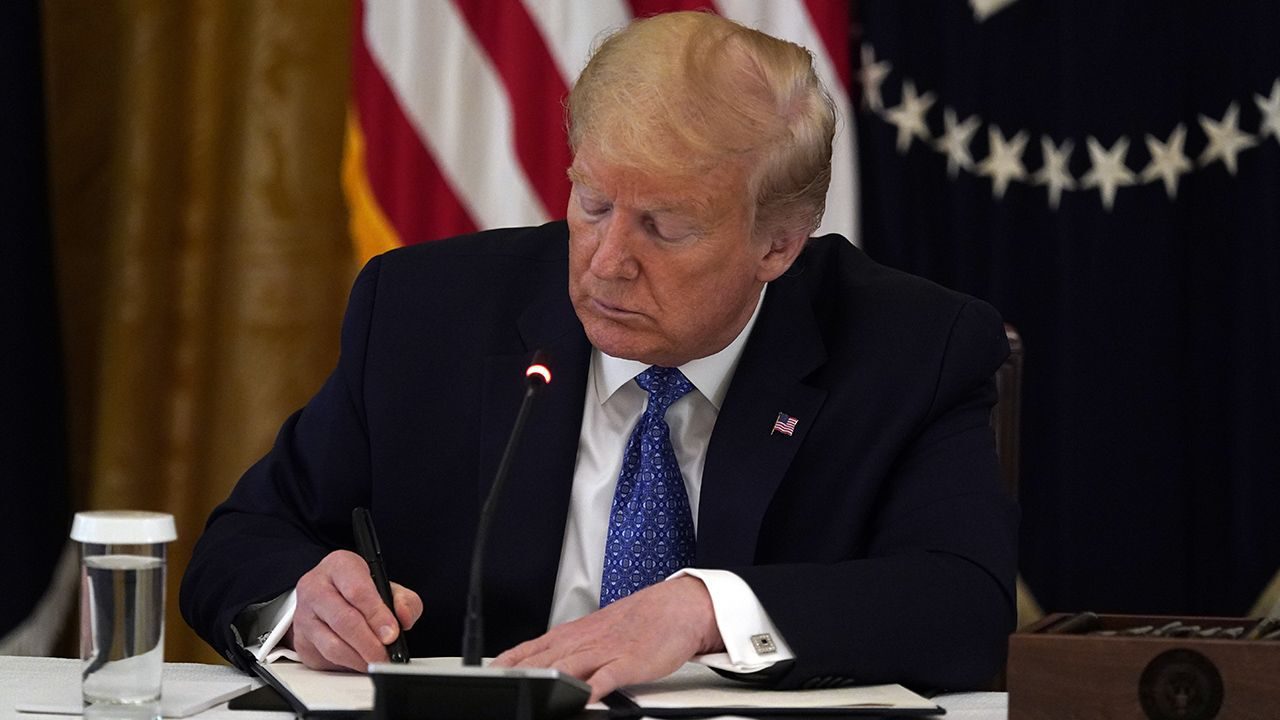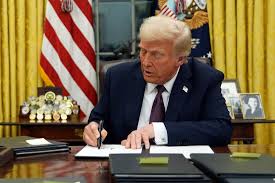Climate Politics
Is Trump Running Out of Ideas?
The hectic pace of the first few months seems to have turned into a slow walk, if not a crawl.
The intimidating scale of Trump’s initial actions has now slipped into the routine of ordinary government, allowing the opposition to recover from its initial paralysis.
One downside of “shock and awe” is that you risk a perception of declining momentum later on. It’s like starting the fireworks show with the grand finale; after you’ve shot off all your big rockets, the rest of the show seems dull, and the audience may just wander away.
The Top Ten Things to be Thankful for this Year
It’s been a horrible year for federal environmental law, but there are hopeful developments elsewhere.
This is, if not the winter of our discontent, at least the late autumn. In terms of federal environmental policy, 2025 has been a disaster. Trump’s previous term in office pales by comparison. But all is not gloomy. Outside of D.C., there have been encouraging developments within the U.S. and globally.
Here are ten of those positive developments.
Abundance politics and climate politics
Recent issue polling shows the similar challenges facing both climate and abundance politics
This week a study of the popularity of a wide range of issues among the American public came out – and created quite a stir. Most of the attention focused on the unpopularity of various Democratic positions on race and gender identity issues. But here I want to highlight the results in two areas I’ve …
Continue reading “Abundance politics and climate politics”
CONTINUE READINGThe 2026 Election: Through a Glass, Darkly
Here’s what things look like now, but a lot could change.
We’re now one year from Election Day. Because of polarization, environmental policy is closely tied to political party. With that in mind, I’ve been providing election information for about the past ten years. I don’t claim any expertise. My predictions are based on two well-established political websites, Cook and Sabato. Given all that’s happening, the situation will surely shift in the next year, but here’s what things look like right now. Obviously, it’s early days. The Democrats will need to get some luster back on their brand and see some tarnishing of Trump’s if they’re to prevail.
CONTINUE READINGDefunding the Energy Transition
The President Proposes Deep Cuts to Climate and Clean Energy Spending for FY 2026
On May 2nd, the White House released what is generally referred to as a “skinny” budget request outlining priorities for discretionary spending for fiscal year 2026. A full federal budget proposal is expected later this month. The “skinny” budget contains, by the White House’s calculations, $163 billion in non-defense discretionary spending cuts, which it argues …
Continue reading “Defunding the Energy Transition”
CONTINUE READINGHow to Lie with Percentages
It’s easy to make something seem big or small, depending on how you present the numbers.
We’re told that a given policy will only reduce U.S. emissions by something like 1%, which sounds trivial. But total U.S. carbon emissions are 4.8 billion tons. One percent of that is 48 million tons, which is a lot of carbon. At the current estimate of the social cost of carbon, reducing U.S. emissions by 1% would prevent $9 billion of harm.
CONTINUE READINGWhy I Still ♥ IRA
Biden’s climate law has already had a dramatic impact.
With over a half-trillion dollars in clean tech investment to date, the Inflation Reduction Act has left an indelible mark on U.S. climate policy. It’s unlikely that Congress will vote to repeal the whole law, given massive investments in GOP congressional districts. But even if they did, there’s no undoing the investments already made.
CONTINUE READINGA Trumped-Up Energy Emergency
We have weathered past threats to energy security through democratic processes, not by executive fiat.
The Executive Order has fabricated an energy emergency and is doubly wrongheaded. First, as the statistics bear out, there is neither a domestic energy emergency nor an energy crisis. The U.S. has effectively secured energy independence. More significantly, Trump’s politically driven, fossil fuel-dependent energy portfolio is neither diversified nor economically sound.
CONTINUE READINGTalking Climate Policy with an Energy Economist
An interview with leading energy expert Catherine Wolfram
Catherine Wolfram, a leading energy economist who has researched the impact of the Inflation Reduction Act, shares her views of the impact of the IRA, its likely fate, and the energy policies of the incoming Trump Administration. Wolfram served as the Deputy Assistant Secretary for Climate and Energy Economics at the US Treasury in 2021-2022
CONTINUE READINGA Crisis in Climate Communications
Deadly windstorms, wildfires, and hurricanes constitute something more horrific than just “climate change.”
What’s best for communicating urgency: phrases like “global warming” and “climate change” or “climate crisis” and “climate emergency”? What do audiences take away from these semantic choices? Does it matter what words we use? What about when the entire nation is watching a series of wildfires engulf Los Angeles, fueled by unusually dry vegetation during …
Continue reading “A Crisis in Climate Communications”
CONTINUE READING










